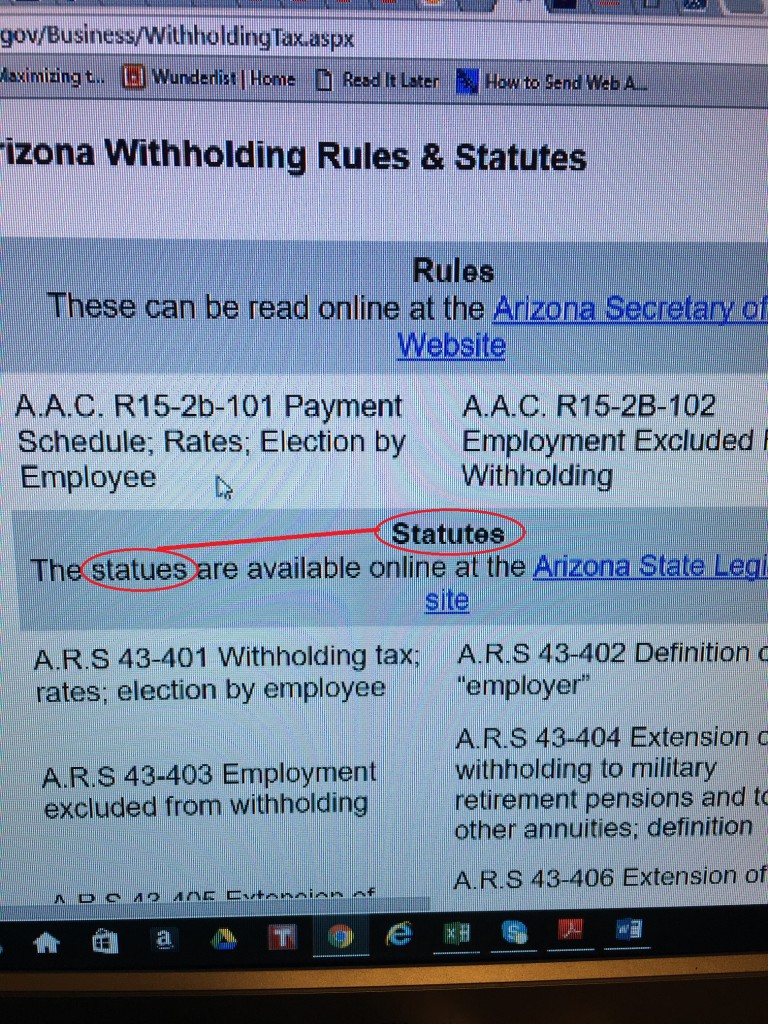Friends who were researching hotels for an event sent this to me recently.

Every business should have someone proof their website. These kinds of errors just make the business look like they don’t care quite enough.
Friends who were researching hotels for an event sent this to me recently.

Every business should have someone proof their website. These kinds of errors just make the business look like they don’t care quite enough.
I keep thinking that if I ever want to change my line of work, all of my local news stations could sure use someone to type their screen verbiage. A friend sent me this one and I only saw the errant apostrophe until I was working with the picture here and saw the hot mess of an attempt at the second use of the word “closing.” The apostrophe in “it’s” is only used as a contraction of “it is” and not to signify possession by “it” of anything– that would simply be “its” as in “closing its doors.” And you spelled “closing” correctly once, what the heck happened to the second one? In this case, two strikes and you’re out!
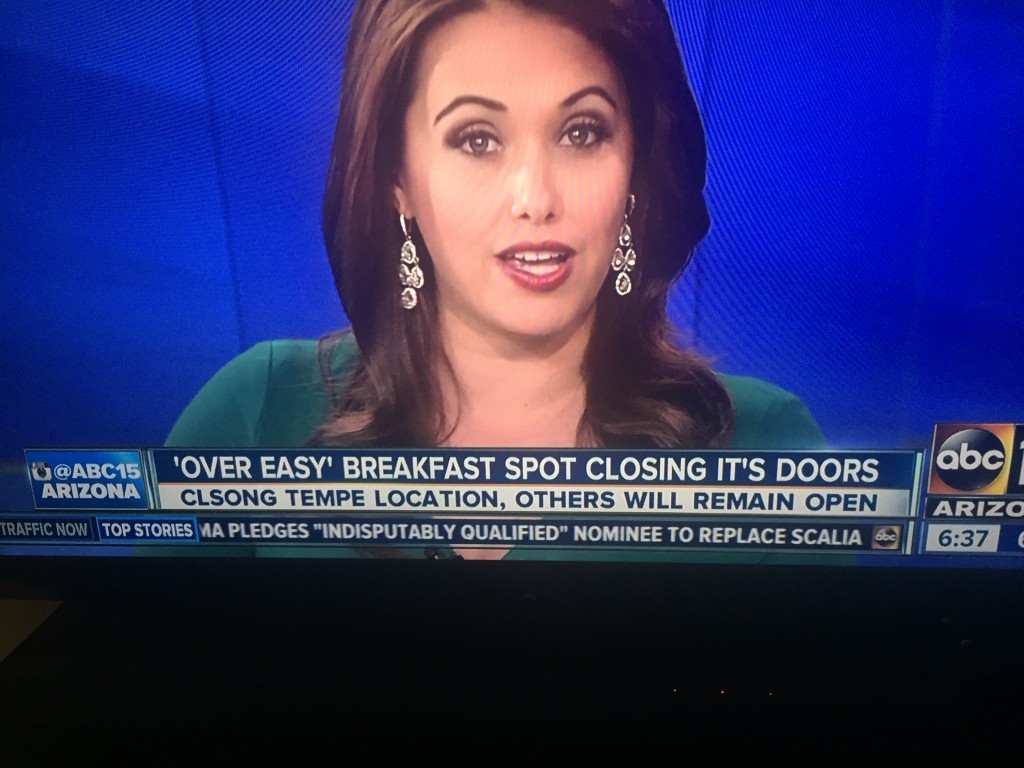
While I have the utmost respect for our clerk of the court being open on a weekend to issue marriage licenses and then our court being open in order to perform marriage ceremonies on Valentine’s Day (which was a Sunday this year), this court announcement caught my eye while I was looking for something else:
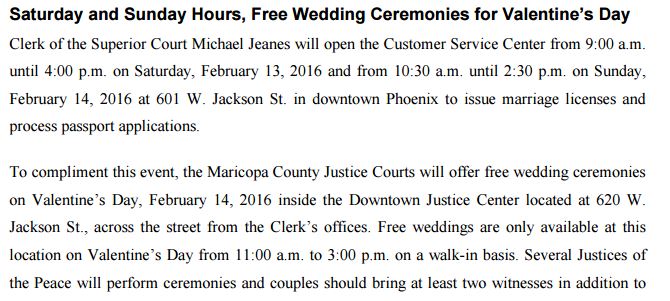
At first glance, it brought out the “ah, isn’t that sweet” in me, but the first sentence of the second paragraph had me gagging on my coffee. According to dictionary.com, “compliment” is an expression of praise, commendation, or admiration, for example “She paid me an enormous compliment on my dress,” while “complement” is something that completes or makes perfect, for example “A good wine is a complement to a good meal.” So you can see that the fact that the court was offering free weddings was a COMPLEMENT to the issuance of marriage licenses. It completed and made perfect the whole Valentine’s Day wedding theme they had going on. One way to remember the difference would be that a complIment is something I like to hear, while a COMPLEment COMPLEtes something. I hope they were complimented on their thoughtfulness in being open on a weekend to do this for couples who wanted to celebrate Valentine’s Day in the ultimate fashion, but I also hope they learn the difference between “compliment” and “complement.”
Happy Valentine’s Day to all the Proof That proofreading blog readers! May your day be spent with those you love and with good grammar. You’re awesome!

My local news channel can always keep me in Grammar Giggles. I caught this one the other night. Close . . . oh so close.
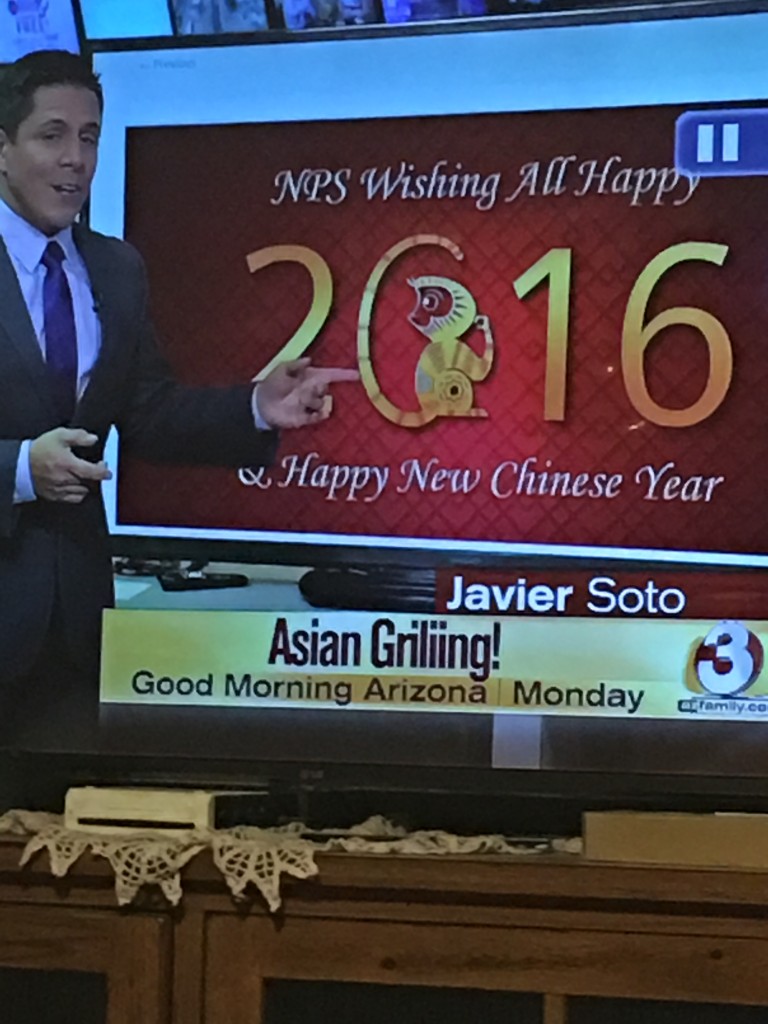
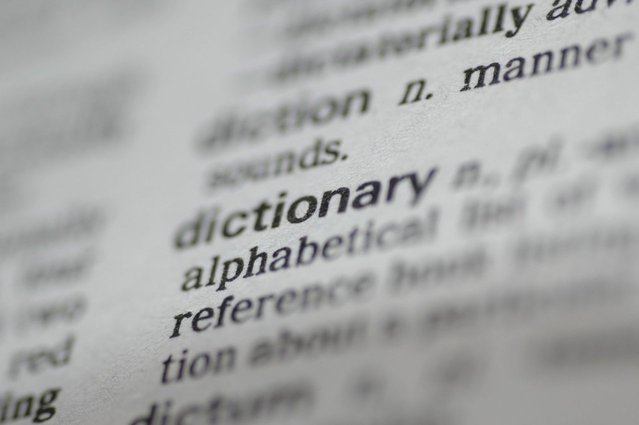 Dictionaries like to name their Word of the Year each year to indicate words that have become more popular in that year. It is definitely an interesting look at the American language each year. In 2015, Oxford and Merriam-Webster both chose a Word of the Year as did the American Dialect Society. With apologies to those who may be sensitive to the words that are not used in common language (at least in groups that you may run with), in the name of keeping it on fleek, I felt it was important to list them all so you would have the information uncensored and not with the intention to offend anyone. Let’s look at their choices.
Dictionaries like to name their Word of the Year each year to indicate words that have become more popular in that year. It is definitely an interesting look at the American language each year. In 2015, Oxford and Merriam-Webster both chose a Word of the Year as did the American Dialect Society. With apologies to those who may be sensitive to the words that are not used in common language (at least in groups that you may run with), in the name of keeping it on fleek, I felt it was important to list them all so you would have the information uncensored and not with the intention to offend anyone. Let’s look at their choices.
The Oxford dictionary chose not a word at all, but the “Face With Tears of Joy” emoji. It is the first time that a pictograph was chosen over a word “that best reflected the ethos, mood, and preoccupations of 2015.” Just in case you don’t know what that emoji looks like, it is this one:

The Oxford “short list” included:
2015 was definitely a year of non-traditional “words” chosen as Word of the Year. Merriam-Webster.com for the first time chose the suffix “-ism” as its Word of the Year, which is the word most frequently looked up in their publication, because “a small group of words that share this three-letter ending triggered both high volume and significant year-over-year increase in lookups at Merriam-Webster.com. Taken together, these seven words represent millions of individual dictionary lookups.” The words with that suffix most frequently searched were socialism, fascism, racism, feminism, communism, capitalism, and terrorism.
The American Dialect Society also voted on its Word of the Year. I find all of the choices most interesting, so am including them here. According to the American Dialect Society, “Note that the number after each nomination is the number of votes it received. Winners are indicated by an asterisk, and numbers separated by slash marks indicate a run-off.”
ADS WORD OF THE YEAR
ammosexual: someone who loves firearms in a fetishistic manner. 42
ghost: (verb) abruptly end a relationship by cutting off communication, especially online. 25
on fleek: put together, impeccable, well-arrayed. 4
thanks, Obama: sarcastic expression in which a person pretends to blame Obama for a problem. 76
* they: gender-neutral singular pronoun for a known person, particularly as a nonbinary identifier. 187
ADS MOST — USEFUL
mic drop: definitive end to a discussion after making an impressive point. 2
microaggression: subtle form of racism or bias. 62
shade: insult, criticism or disrespect, shown in a subtle or clever manner. 11
* they: gender-neutral singular pronoun for a known person, particularly as a nonbinary identifier. 214
zero fucks given, ZFG: indication of supreme indifference. 41
ADS MOST CREATIVE
adult: (verb) behave like a grownup 71
* ammosexual: someone who loves firearms in a fetishistic manner. 153
lowkey: (adverb) to a small extent, in a subtle manner; opposite of highkey. 38
squad: one’s posse or close circle of friends. 3
yass, yaass, yaaass, etc.: expression of excitement, approval or strong agreement. 43
ADS MOST UNNECESSARY
dadbod: the flabby physique of a typical dad. 16
* manbun: man’s hairstyle pulled up in a bun. 207
or nah: question tag expressing that something may not occur. 34
trigger warning: alert for potentially distressing material. 10
thanks, Obama: sarcastic expression in which a person pretends to blame Obama for a problem. 34
ADS MOST OUTRAGEOUS
fish gape: posed expression with cheeks sucked in and lips slightly apart. 3
* fuckboy, fuckboi: derogatory term for a man who behaves objectionably or promiscuously. 127 / 173
schlong: (verb) defeat soundly. 93 / 148
sharewashing: deceptive marketing by companies treating services as “sharing.” 14
white student union: campus organization organized in response to a black student union. 27
ADS MOST EUPHEMISTIC
af, asf: intensifier after an adjective (abbreviation for “as fuck”). 1
lit: amazing, exciting or fun. 2
* Netflix and chill: sexual come-on masked as a suggestion to watch Netflix and relax. 315
swipe right/left: accept or reject (based on gestures used on Tinder dating app). 24
ADS MOST LIKELY TO SUCCEED
CRISPR: gene-editing technology allowing biologists to alter and control DNA sequences. 51
* ghost: (verb) abruptly end a relationship by cutting off communication, especially online. 223
mom: admiring term of address for a woman seen as a mother figure. 17
on fleek: put together, impeccable, well-arrayed. 23
ADS LEAST LIKELY TO SUCCEED
Berniementum: momentum behind the candidacy of Bernie Sanders. 59
hoverboard: self-balancing motorized skateboard. 82 / 106
* sitbit: device that rewards sedentary lifestyle (play on Fitbit fitness tracker). 102 / 191
Uber for X: pitch used by startups seeking to emulate Uber in different tech sectors. 33
ADS MOST NOTABLE HASHTAG (new category)
#JeSuisParis: expression of solidarity after the Paris terror attacks. 6
#LoveWins: celebration of Supreme Court ruling on same-sex marriage. 60
* #SayHerName: call to bring attention to violence against women of color. 178
#StayMadAbby: ridiculing plaintiff in Univ. of Texas affirmative action case. 17
#StayWoke: exhortation to remain vigilant and informed (used by #BlackLivesMatter movement). 59
ADS MOST NOTABLE EMOJI (new category)
![]() : heart eyes (romantic, passionate). 31
: heart eyes (romantic, passionate). 31
 : winking face (humorous, flirtatious). 8
: winking face (humorous, flirtatious). 8
 : information desk person (sassy, sarcastic). 31
: information desk person (sassy, sarcastic). 31
* : eggplant (sexual innuendo). 138
: eggplant (sexual innuendo). 138
 : 100 (“keep it 100,” “keep it real”). 56
: 100 (“keep it 100,” “keep it real”). 56
Don’t you feel smarter now? I had heard some of these expressions, but didn’t know exactly what they meant. Now I do.
References:
I saw this on a friend’s Facebook page and asked her if I could steal it from her. She found this on an Amazon review. Really!

I saw these signs as I was waiting in the Starbucks drive through line one night recently and had to drive closer to actually take the pictures. I can sometimes grant someone a minor error, but when you make more than one and they are not “minor,” you will definitely end up as a Grammar Giggle. “Receive” is misspelled in the first sign and the second misuses the apostrophe to make a word plural.


My son sent this to me from one of the trade publications he received at the office. In a trade magazine! That is distributed to companies you want to do business with! Any advertisement for publication should be proofread by people who understand the industry and review every single word. Publication of your work product is too important to have these kinds of errors for everyone in your industry to see.
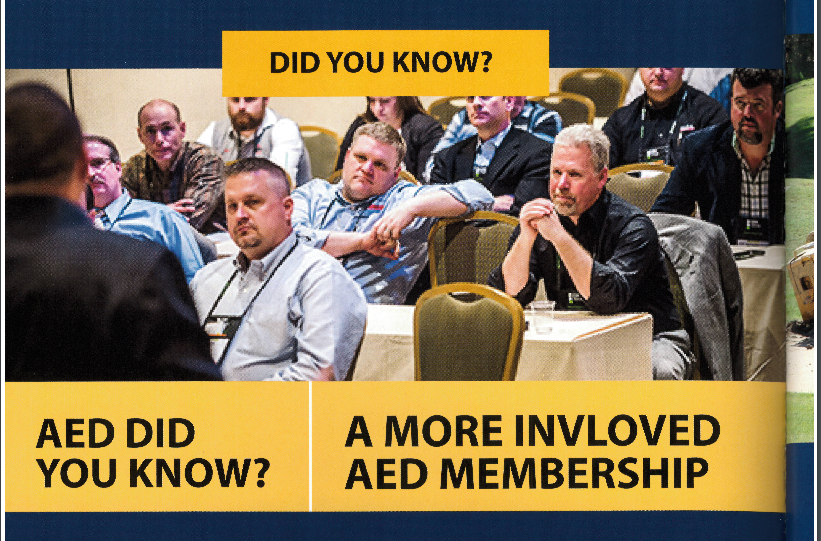
i was looking up information about payroll reports when I came across this error which jumped out at me. It is proof that you can’t trust spell check. Both words are spelled correctly. I have trouble with “statues” instead of “statutes” sometimes too, but I check to make sure I have them right. And I’m not a government entity directing the public to the actual statute!
